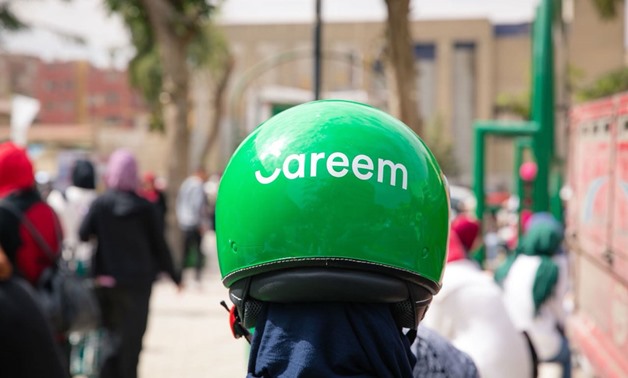
Careem’s services integrating bikes in Cairo’s streets assists in developing plausable solutions to the challenges by using technology
CAIRO - 15 July 2018: As urban development continues to be an important national topic of discussion in Cairo’s streets, private companies are starting to take essential investment decisions to allow flexibility to travelers.
The introduction of the scooter or bikes in the country has paved the way for a large potential market with a lower penalty from congestion, operating systems, and environmental impacts. According to the UN, 55 per cent of the world’s population lives in urban areas, a proportion that is expected to increase to 68 per cent by 2050 - and commuting to and from those urban areas, there will be an incredible demand for various modes of transport.
Careem was the first private market entrant in this intelligent transport category, adding a bikes classification as a ride-hailing service in its application portfolio. This inevitably contributes to Egypt’s Vision 2030 objective of developing Egypt’s capital as a sustainable city and community for an efficient quality of life.
According to the World Bank, the economic costs of traffic congestion in Cairo could be as high as 4% of GDP annually, equivalent to EGP 50 billion a year[1]. The economic costs are beyond travel delays and they include wasted fuel, health impacts due to poor air quality and accidents, and impacts on economic productivity. Shared mobility could lead to an 80 per cent reduction in the number of vehicles by 2050.
In turn this reduces pollution and C02 emissions, congestion and need for parking and parking spaces. Around 50 hours per person every month are spent in traffic and 60 percent of trips only have one passenger per vehicle, and bikes have become an alternative transport method forming a solution to the traffic. With urban development at the top of the agenda for policy-makers in the country, there are growing challenges to tackle translated into possible solutions from the private sector. The influence of ride-hailing apps educating the population on the development of transportation alternatives is increasing in demand.

Car drivers are starting to realize that transport through bikes is saving them time and money, especially as rush hours create dramatic consequences for all road users in the fast-pace city life. With this in mind, people are embracing this upcoming trend by ride-hailing apps considering the boost to productivity and the reduction in duration of trips through traffic. Careem Egypt, pioneering this trend in the country with rides that start at 6 EGP that is affordable to the masses with security insurance on all trips. Bikes have been proven to be 3 times faster than passenger cars, and 50% more affordable in cities.
Ramy Kato, Careem Egypt Managing Director, commented on Careem’s efforts stating: “With different transport modes, we’ve been solving local problems with local solutions, but we are also creating a unifying platform. We look at what fits the distinct make-up of each location, and if you look at the markets where we are present, we have tried to reduce prices and make our service more affordable while doing so. This shared mobility could lead to an 80% reduction in the number of vehicles and CO2 emissions by 2050.”
Bikes should become an upcoming attractive alternative transport method, with many trips made by solo travelers such as driving to work. This should appeal to the masses who want the flexibility of driving with lower congestion and parking costs. This is in addition to the fact that the bikes are available and operate in urban areas that have limited accessibility to cars, achieving a more attractive demand for travelers that are constrained in travel options. Discomfort during poor weather conditions is less of an issue to worry about in Egypt with moderate weather conditions all year around, making bikes the most trendy transport option in Cairo.
Egypt’s Vision 2030 under the Urban Development Pillar evaluates the dependence on traditional technologies for provisions of facilities and services. The state’s follow up of traditional means to cover facilities instead of modern technologies or dependence on local resources results in unnecessary increases in the expenses of covering the services. Additionally, the quality deterioration in public transportation does not fulfill the needs of all citizens which limits the demand for using them. Careem’s services integrating bikes in Cairo’s streets assists in developing plausable solutions to these challenges using technology to empower choices of transportation and allows for a diversity of options for the masses to use different methods of transportation across private and public sectors.
Since launching, Careem has rapidly grown and created around 850,000 jobs and we are creating between 60,000 and 70,000 new jobs every month as the Careem model for moving people expands into more cities and countries across the region.




Comments
Leave a Comment